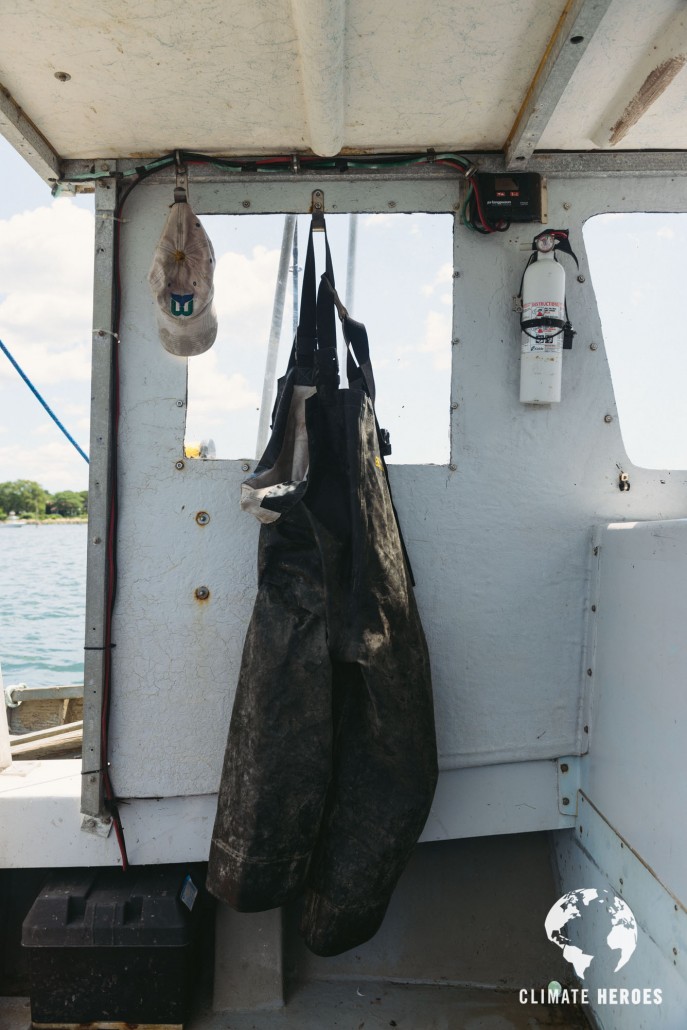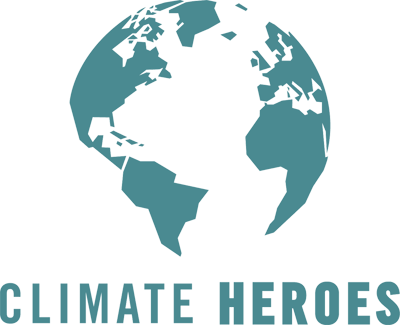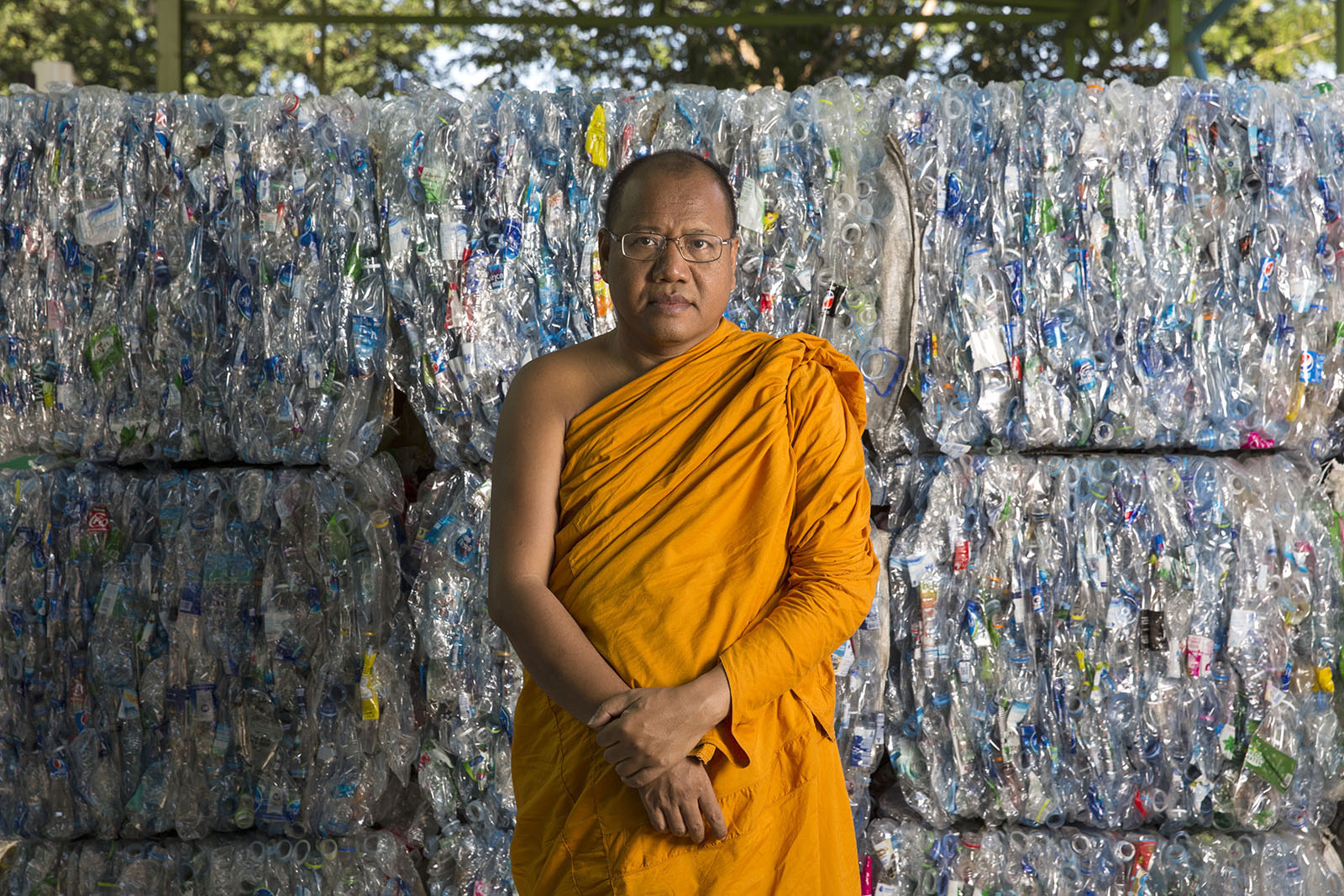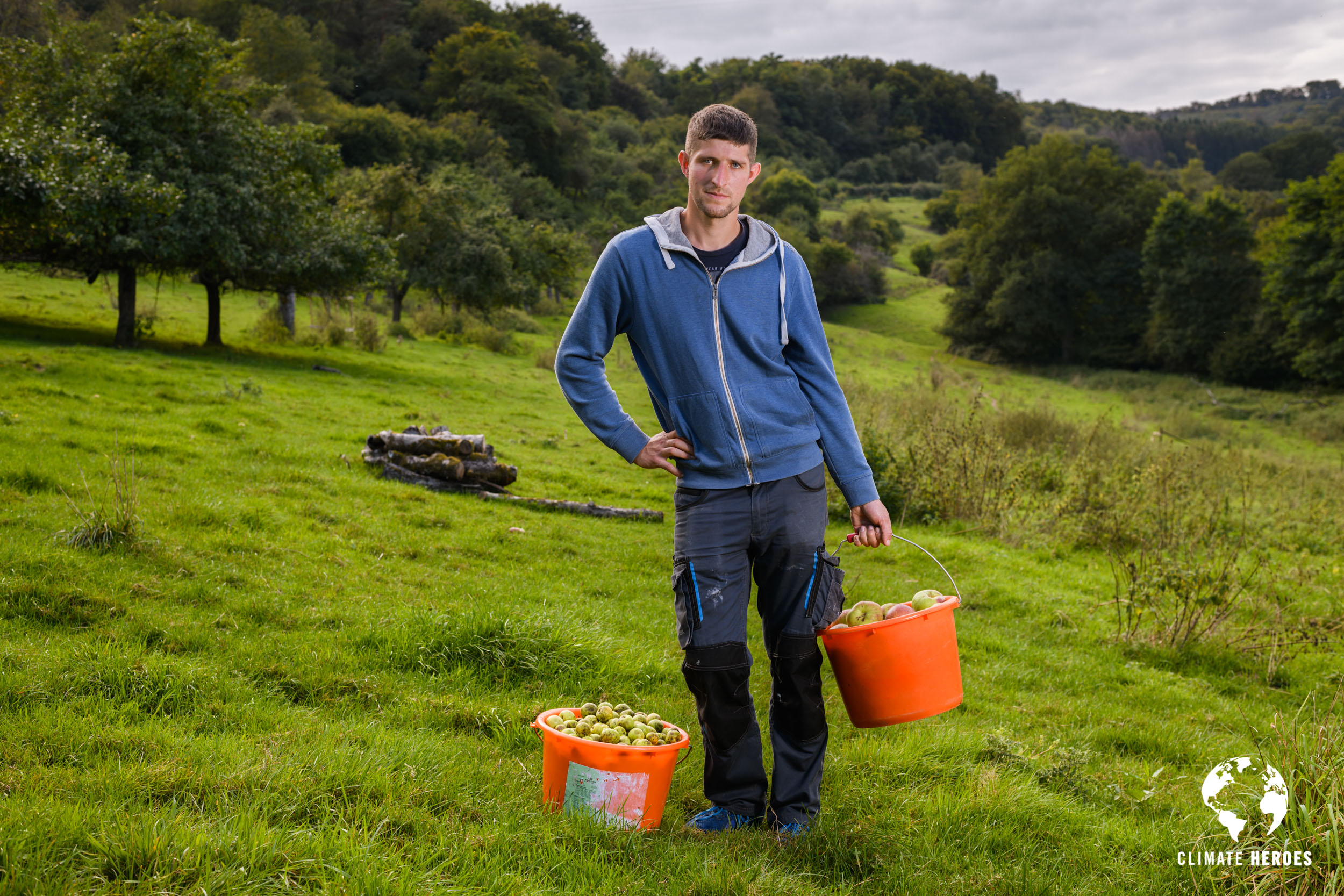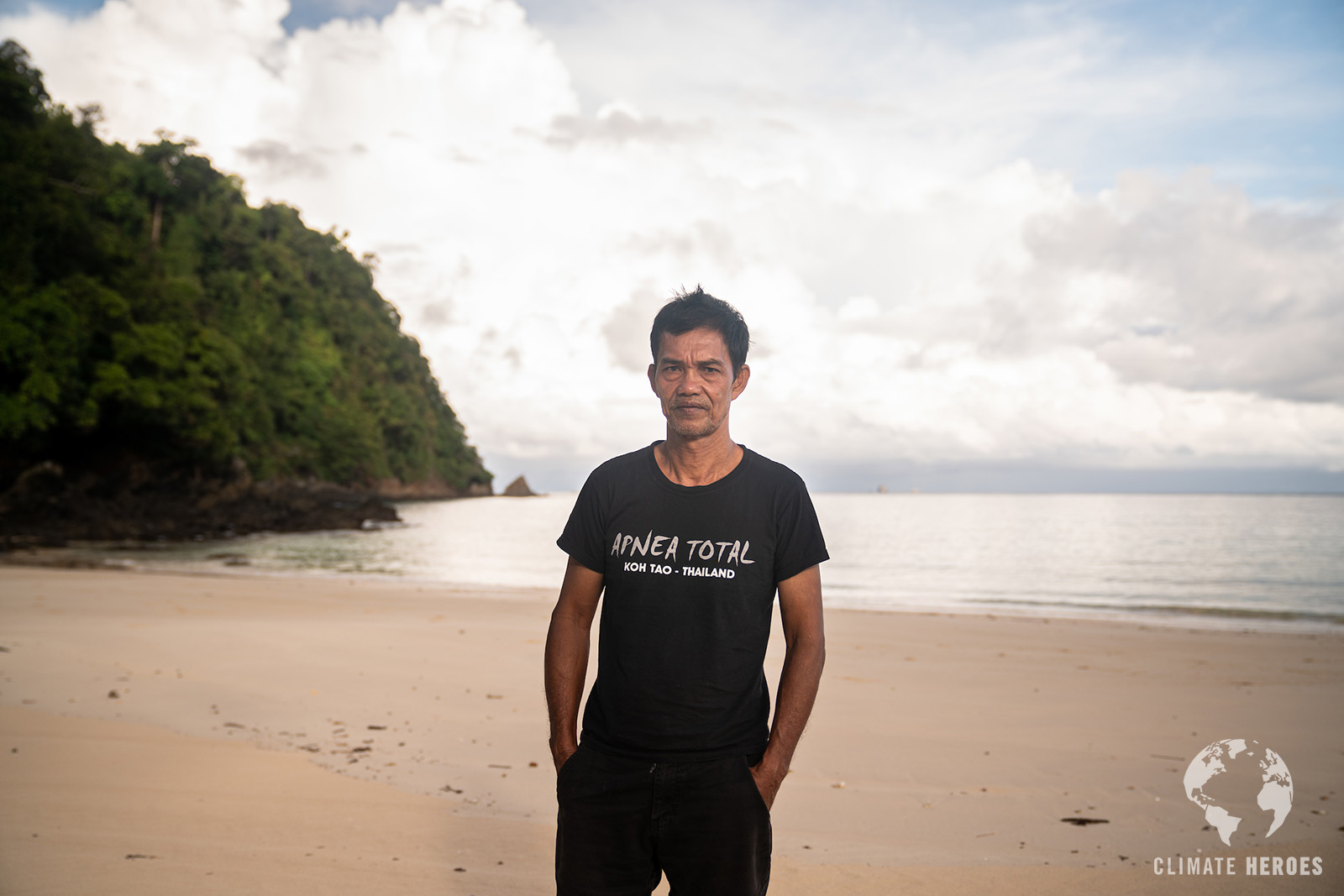Bren Smith: Making kelp our new hope
A former industrial fisherman on a quest for ecological redemption, Bren Smith has put together a new model of ocean farming that can both restore our oceans and feed the planet.
“People aren’t only looking to eat food, they want to enjoy a good story”, explains Bren Smith, on the way to his marine farm, 20 acres of salt water in the Long Island sound, close to New Haven in Connecticut, USA, where he grows Kelp (an algae), mussels, oysters and scallops according to a new model of ocean farming. His story began about 40 years ago, in a small fishing community in a Newfoundland village, further up north, in Canada. Surrounded by fishermen, he preferred the open sea to school benches, and dropped out to head out to sea at age 14.
Onboard a trawler, he tore up entire ecosystems by raking the bottom of the oceans, from the Behring Sea to the New England shores, mostly working to supply food for McDonald’s. He was one of the first to be hit by the crash of the cod’s stock in 1994: “Our whole generation had to redefine our relationship to the sea. I understood that if I wanted to spend my life on the water, I had to do things differently, and so I went on a search for sustainability, for the next 20 years.”
Bren Smith has been looking ever since for ways to work with marine resources while restoring the fragile ecosystem that had been unsettled by climate change and overfishing. “After working at the height of industrialized fishing, I decided to start aquaculture, and started by producing only oysters and clams. But starting in 2011, I was hit by hurricane Irene and then hurricane Sandy, the following year. Each time, I lost 90% of my crop. I had no other choice but to adapt to this new situation. I wondered how to go on being an ocean farmer in this new world of climate change. So, I started imagining solutions to help reverse this trend, lest we shall just be running straight into the wall,” he explains.
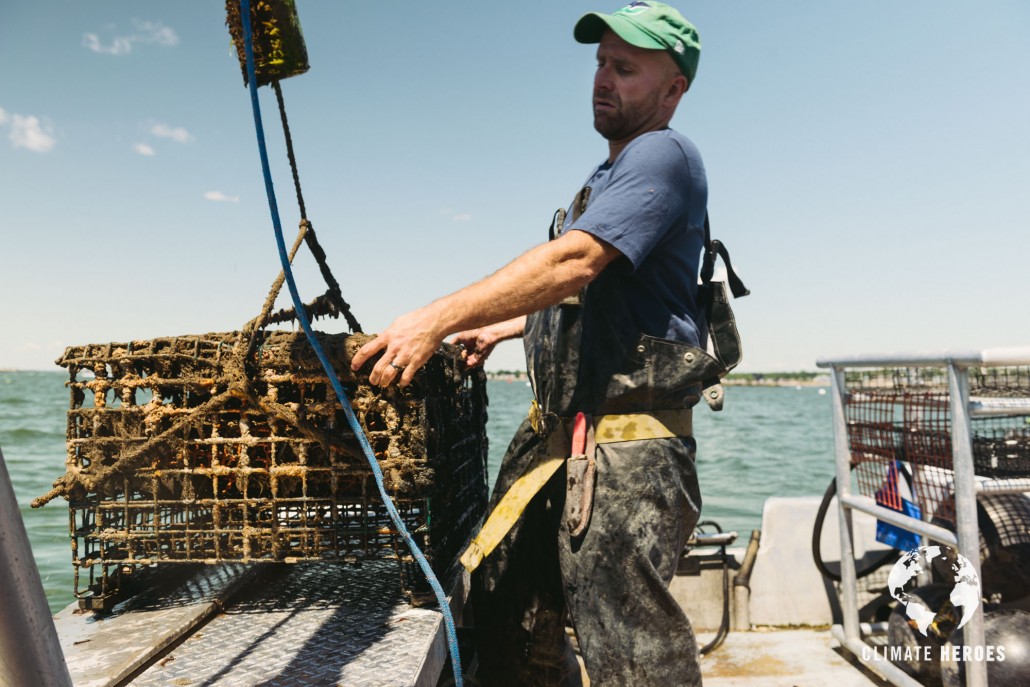
Researching techniques and solutions from all over the globe, and after many trials and errors, he developed an aquaculture system based on biodiversity that resembles an underwater scaffolding. Kelp grows on a line near the surface, alongside beads of mussels and meshes full of scallops. At the bottom, oysters grow in cages. No need for fresh water, fertilizers or antibiotics. This ecosystem, which feeds on each other, also serves as a filter for nitrogen or carbon dioxide that would otherwise end up in our atmosphere. “Each oyster can filter up to 50 gallons of water a day and pull out the nitrogen content. Kelp sequesters five times as much CO2 as land plants, is an excellent source for biomass, a great fertilizer, can be used as biofuel, and eaten as a super food, it is delicious. We call it the Sequoia of the sea », proudly explains the forty-year-old.”
His next challenges are two-fold: to transform the taste of his fellow countrymen in order to increase their consumption of seafood and sea vegetables – with more than 10,000 edible plants in the oceans, there should be plenty of opportunities for new dishes – and to replicate his model across the country (and across the world) thanks to trainings, fellowships and open-sharing of the knowledge and techniques developed on his farm.
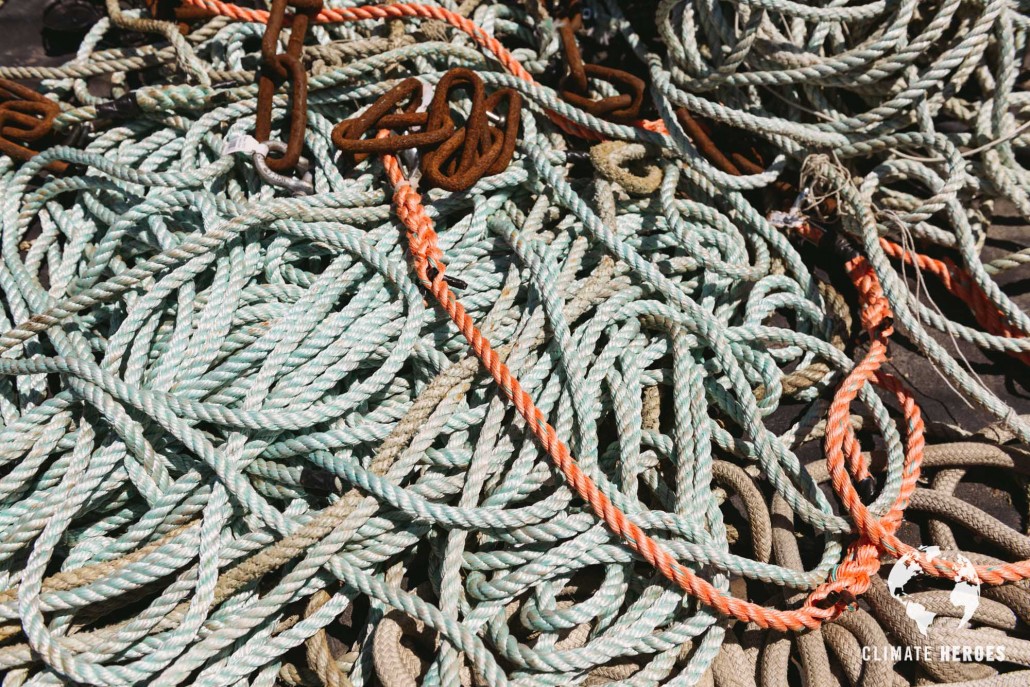
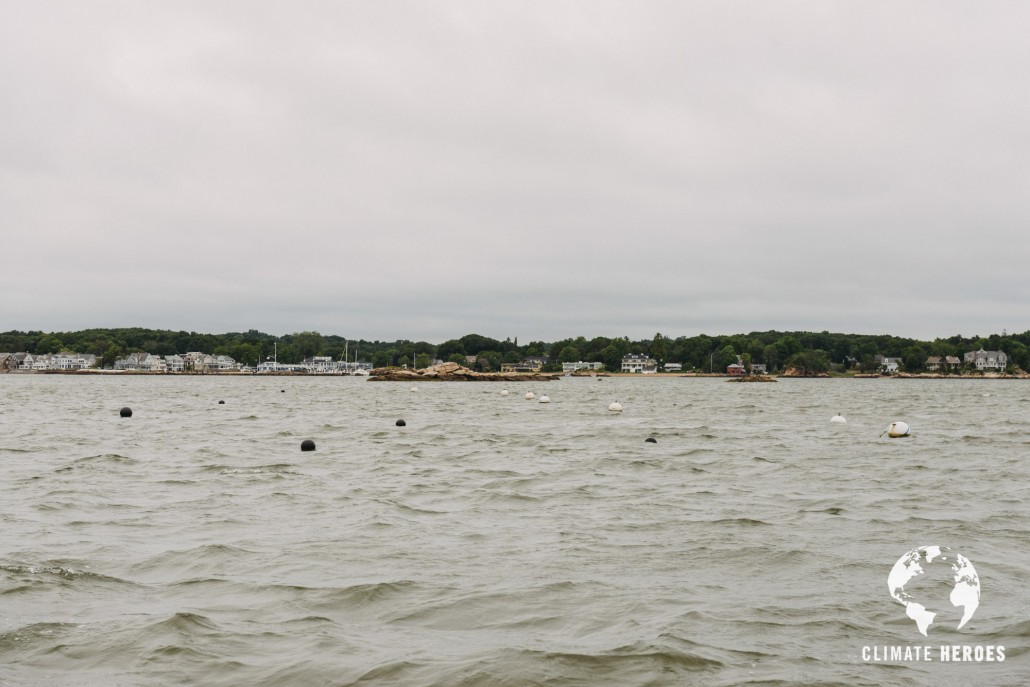
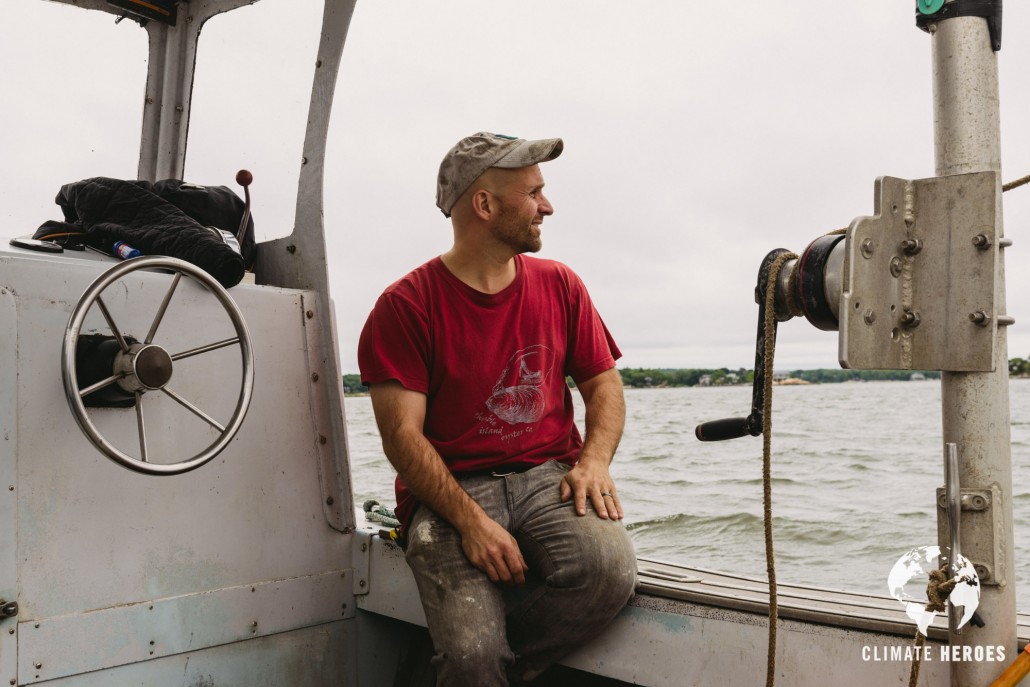
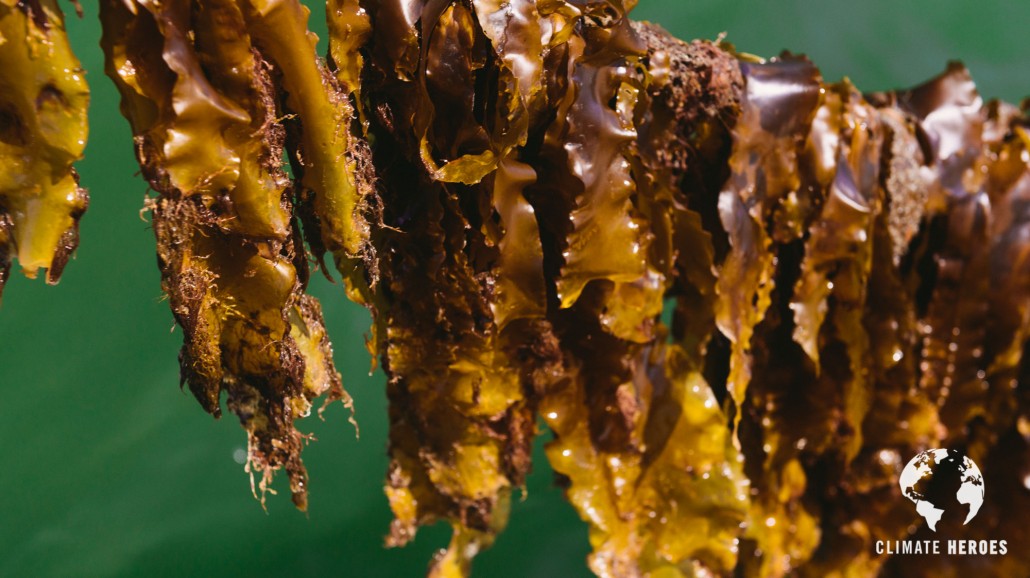
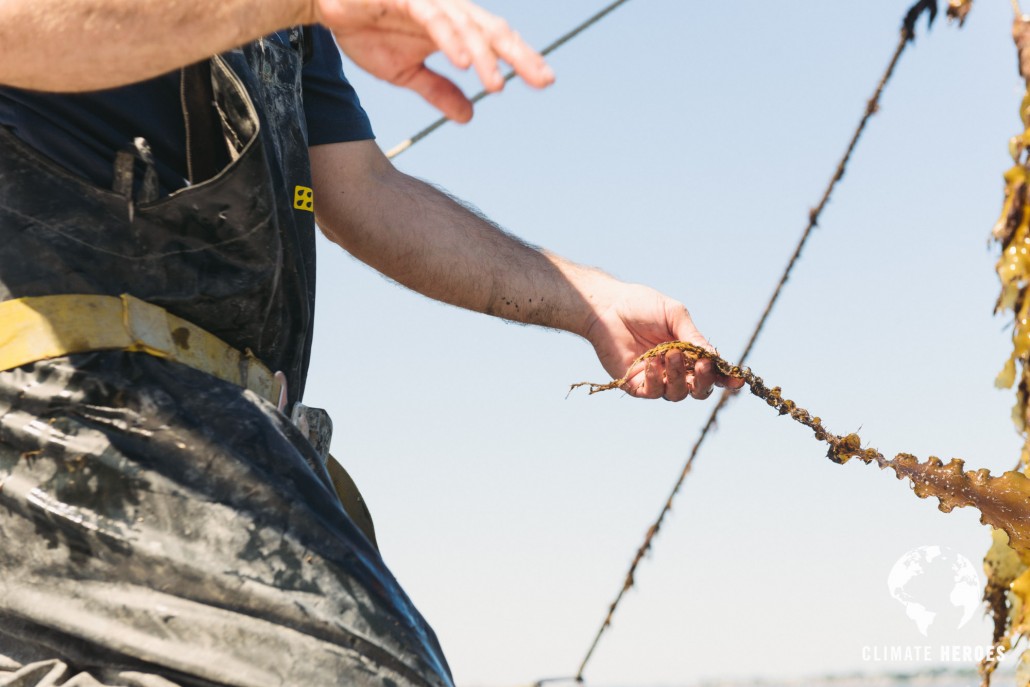
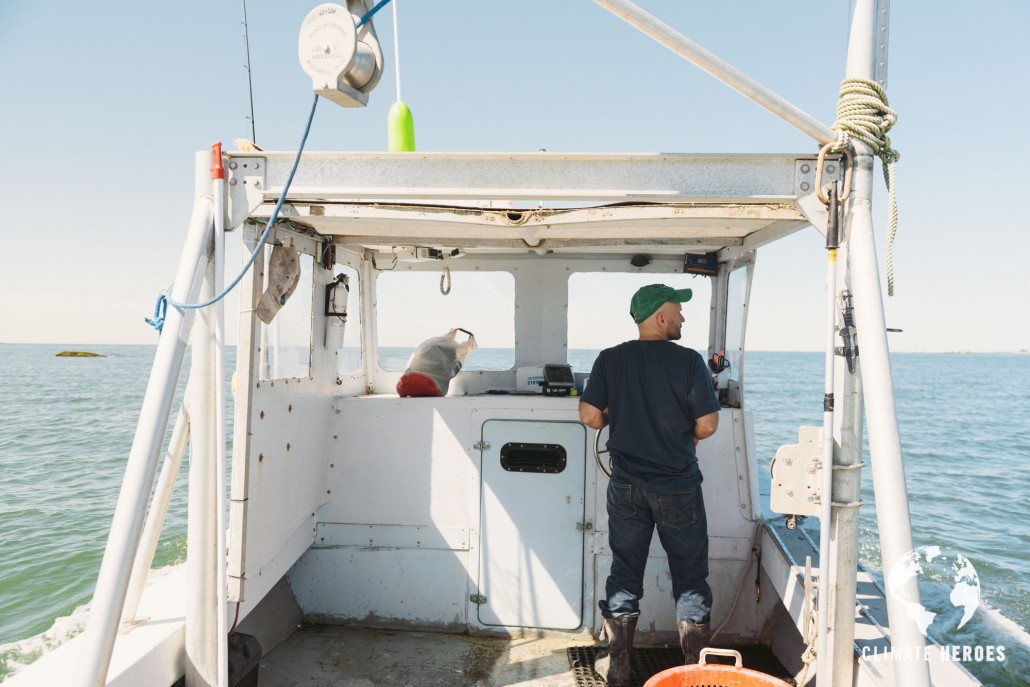
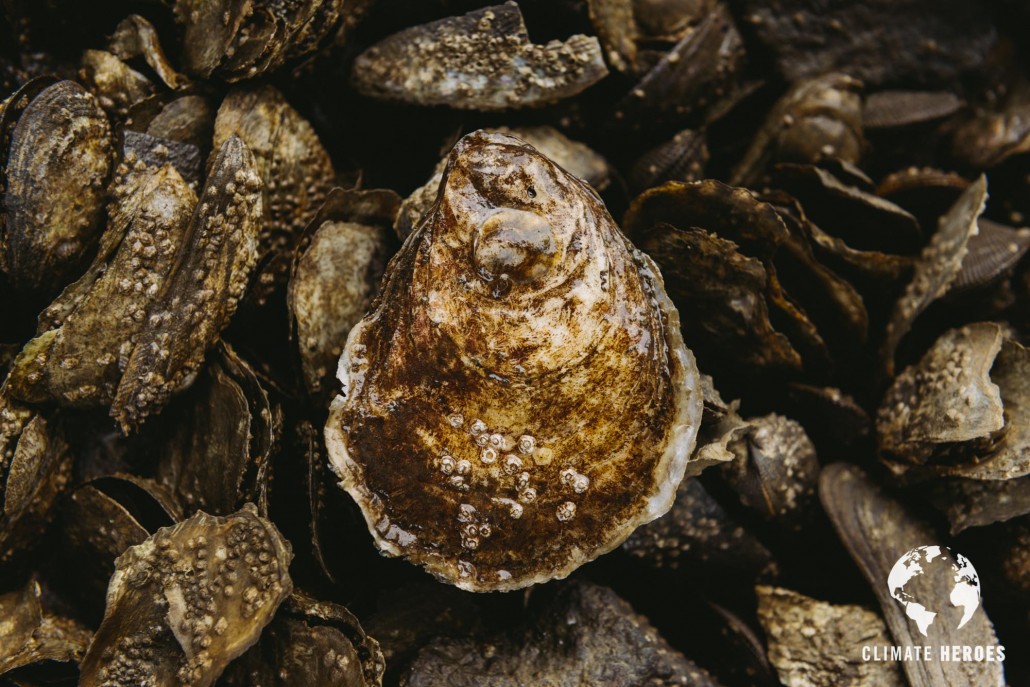

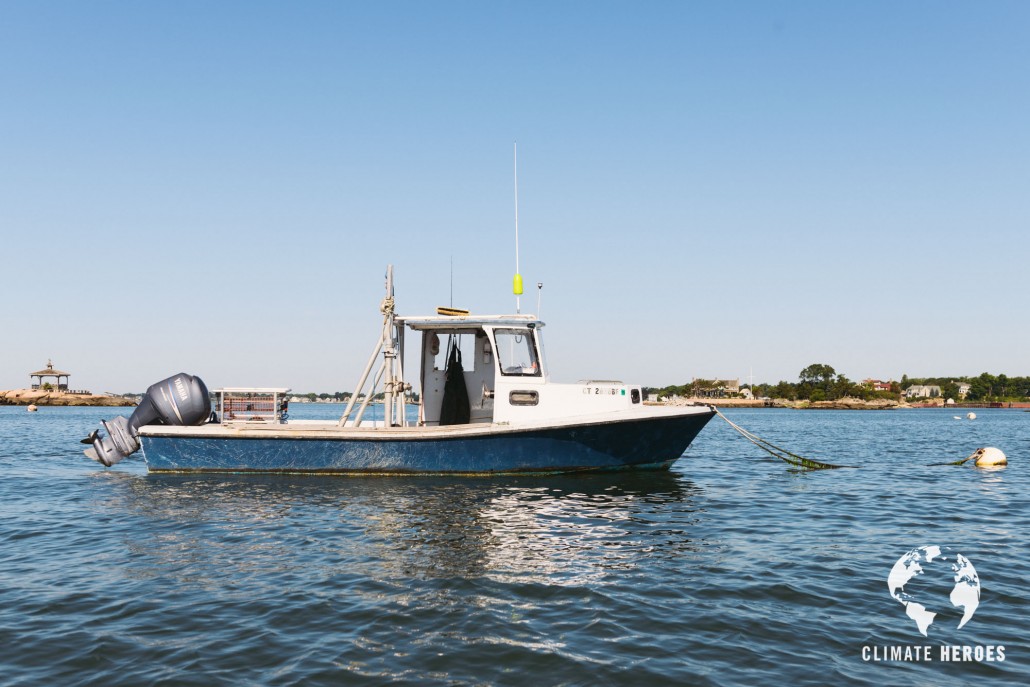
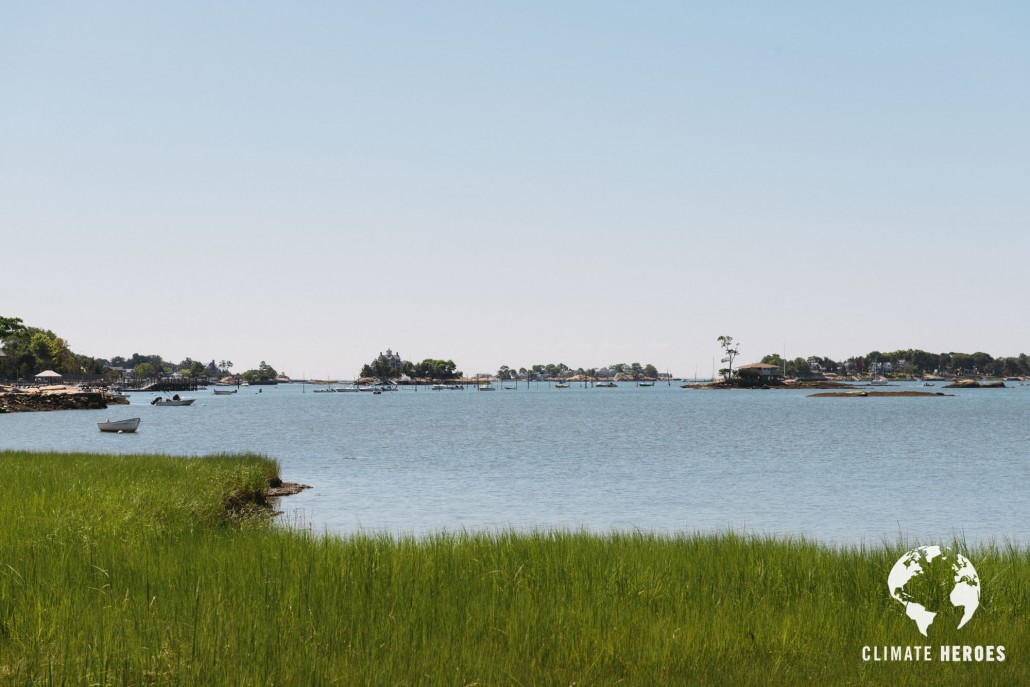

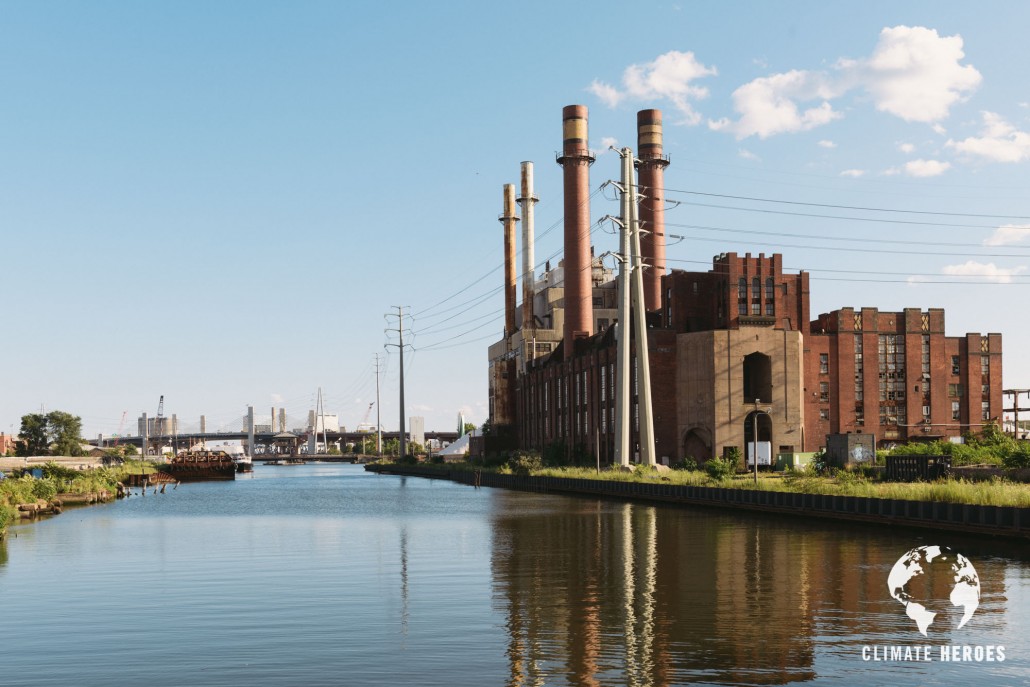
In order to achieve this, he founded Greenwave, an NGO and non-profit entity. Its mission: to support similar initiatives and provide all the knowledge to replicate them. “We have to stop eating according to our desires but rather take into account what the planet has to offer, and shift our taste to a new climate cuisine. In this new era of climate change, we have the opportunity to develop a new and intelligent production system, which can be beneficial to people, to the planet and to our economy,” adds the veteran ocean farmer, turned environmentalist.
“By eating like a fish, which finds all the wonderful nutrients we need in nature rather than creating them, we can be healthy while reducing our pressure on fish stocks, take care of our oceans and preserve them by creating large marine parks alongside smart farms.”
